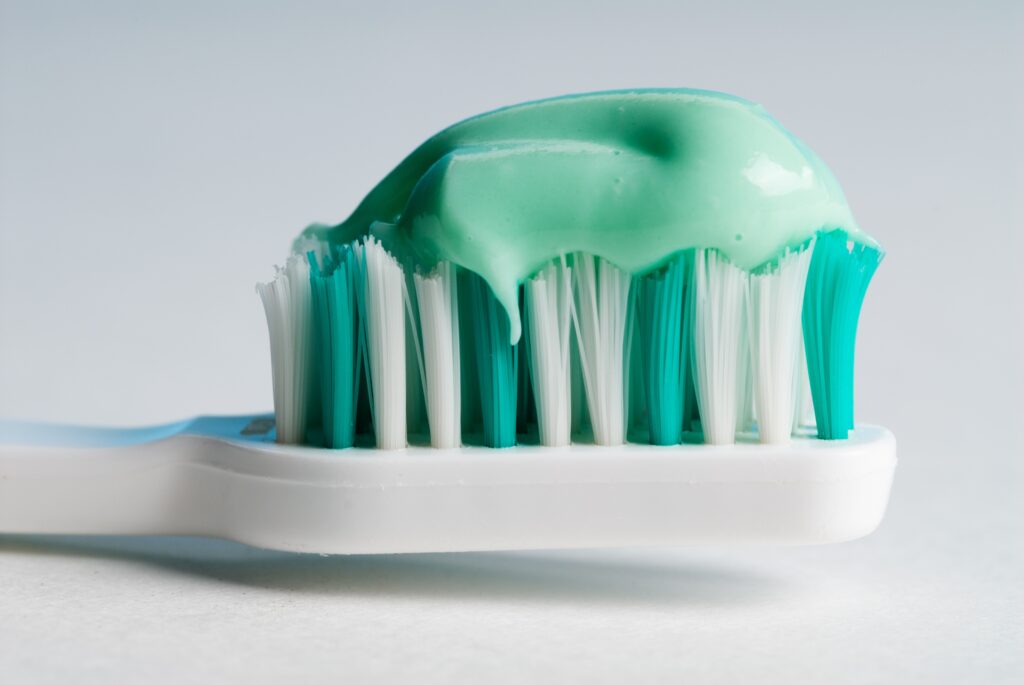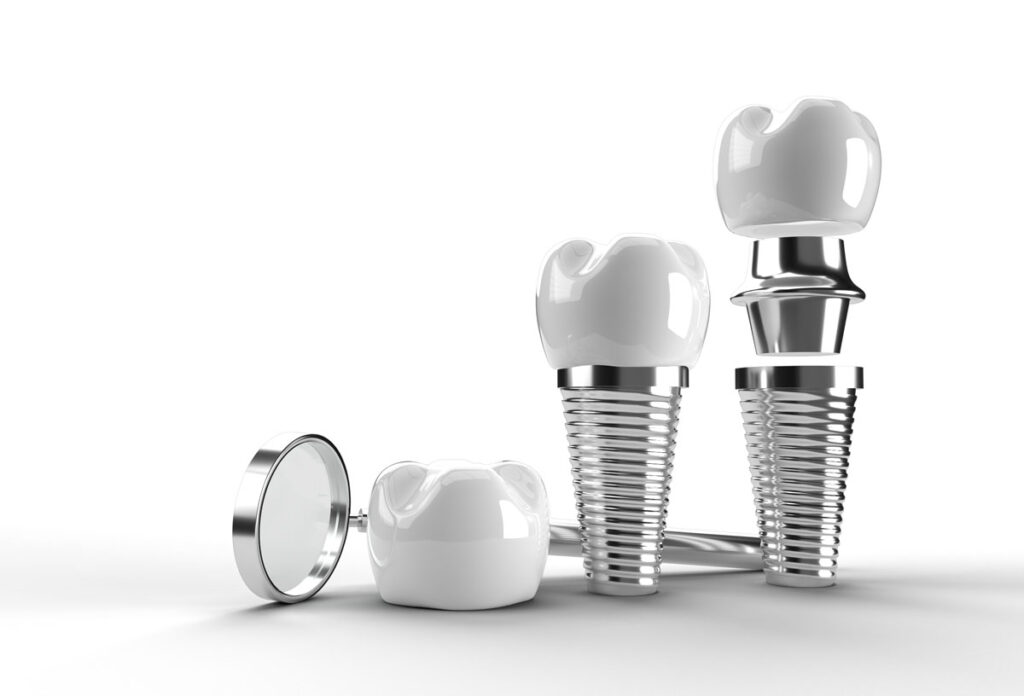In a perfect world, the only time you would go to the dentist would be for your routine cleanings. You’d have perfect teeth, healthy gums, and a pearly white smile. But unfortunately, that isn’t the case for many people.
Most people go through many difficulties when it comes to their oral health. Cavities, cracked teeth, infections, and gum recession—those are just a few of the many dental issues people face, which is exactly why there are so many different types of oral health professionals. There are general dentists, orthodontists, oral surgeons, prosthodontists, and more.
You probably know what a general dentist and an orthodontist are, but what is a prosthodontist? A prosthodontist is a type of dental specialist who specializes in the treatment of complex dental and facial matters. A prosthodontist has extensive training in various restorative procedures, such as bonding, bridges, full mouth reconstruction, bone grafts, and more.
Use this guide to get the answers to “what is a specialist prosthodontist?”, “what do prosthodontists do?” and “how to know you need to see one?”. Continue reading, or use the links below to jump to a section of your choice.
- What Is a Prosthodontist?
- When Do You Need to See a Prosthodontist?
- What Types of Procedures Does a Prosthodontist Do?
- How Much Does It Cost to See a Prosthodontist?
- Ensure You Receive the Oral Health Care You Need
What Is a Prosthodontist?
If you’re dealing with a complex oral health issue, like missing teeth or jaw problems, your dentist may recommend seeing a prosthodontist. But what is prosthodontics in dentistry? And what does a prosthodontist do? We’ll answer all of those questions (and more) for you below.
The “prostho” in prosthodontist means “replacement” and “dontist” refers to teeth. According to the American College of Prosthodontists (ACP), prosthodontists specialize in the restoration and replacement of missing teeth and oral structures with natural and functional replacements. Prosthodontists restore oral function with dental restorations, such as crowns, implants, or veneers. They also deal with TMJ disorder and various snoring disorders. In addition to restoring oral function, prosthodontists also specialize in cosmetic dentistry, which includes procedures like veneers and smile makeovers.
Becoming a prosthodontist involves an additional three years of school after obtaining a DMD (Doctor of Dental Medicine) or DDS (Doctor of Dental Surgery) degree. These three years will focus on advanced training of aesthetic restoration and replacement of teeth. In this time, aspiring prosthodontists will learn the ins and outs of how to treat complex dental conditions and how to restore the function and aesthetic of a smile.
What Is the Difference Between a Dentist and a Prosthodontist?
A general dentist is who you see when you get that call that it’s time to come in for your routine cleaning and checkup. A general dentist performs a lot of different procedures, such as fillings, extractions, gum treatments for gum disease, simple dental crowns, and more.
But a general dentist is a lot different from a prosthodontist. A prosthodontist is who you’ll want to see if you need some or all of your teeth replaced or restored as they have received extensive training in restorative techniques—especially for complex cases. Your general dentist may refer you to a prosthodontist for certain procedures that they may not be trained to handle.
The biggest difference between a dentist and a prosthodontist generally boils down to the principle that a dentist’s main goal is to repair teeth and ensure they stay healthy, and a prosthodontist’s main goal is to replace teeth and ensure the proper oral function of your entire mouth.
What Is the Difference Between a Periodontist and a Prosthodontist?
The types of oral healthcare professionals don’t end at general dentists and prosthodontists. There are several other types of oral health specialists, such as periodontists.
A periodontist differs from a prosthodontist in various ways. We know that a prosthodontist deals with the replacement and restoration of missing teeth, as well as many other complex dental procedures. A periodontist focuses on the gums, bones, and tissues that support the teeth.
Periodontists are specialized in various gum-related conditions, like gingivitis. They perform procedures like gum graft surgery, dental crown lengthening, and scaling and root planing, among other procedures. Both periodontists and prosthodontists must attend additional schooling to receive the proper training in their field of specialty.
When Do You Need to See a Prosthodontist?

There are a myriad of reasons why your dentist may recommend seeing a prosthodontist. Maybe you’re insecure about your smile and want to improve the aesthetics of your teeth. You may also be referred to a prosthodontist if you’re missing teeth and need them replaced or you’re suffering from jaw problems and can’t bite properly.
A prosthodontist can perform a series of procedures to improve the oral function and appearance of teeth. In addition to restoring and replacing teeth, a prosthodontist can also perform cosmetic procedures. The main goal of a prosthodontist is to give their patient the strongest, healthiest, and brightest smile possible.
Your dentist will be able to steer you in the right direction for what your specific situation calls for.
What Types of Procedures Does a Prosthodontist Do?
So, what do prosthodontists do? These are some of the most common procedures that a prosthodontist performs:
- Dental Implants: Dental implants are replacements for tooth roots that provide a permanent base for fixed, replacement teeth. Dental implants can restore your smile to full strength and function by securing your dentures, crowns, or bridges. Implant-supported restorations can help with speech problems and improve overall comfort and oral health. Depending on the severity of your damaged teeth, you can get full mouth implants, multiple implants, or single-tooth implants.
- Dentures: Dentures are replacements for missing teeth that can be taken out of your mouth and be put back in. You can either have complete dentures, which is when all of the teeth are missing, or partial dentures, which is when some of the natural teeth still remain. Dentures can be attached to dental implants for a fixed restoration that provided greater stability and helps prevent further tooth loss.
- Veneers: Veneers are a cosmetic solution that can conceal chips, stains, and other damage. A veneer is a thin shell that’s placed over the front of teeth to improve the aesthetics and strength of a smile. They can also sometimes be used to hide gaps in your teeth. A general dentist can usually perform basic veneer procedures, but a prosthodontist takes on more complex cases.
- Dental Crowns: Dental crowns are placed over damaged teeth to restore structural integrity and strength. Crowns are used when fillings don’t do the trick. Dental crowns are used for a variety of reasons, like restoring a broken tooth or serving as an anchor for a dental bridge. General dentists often place crowns, but again, prosthodontists may be needed for more complex situations.

How Much Does It Cost to See a Prosthodontist?
The cost of seeing a prosthodontist varies depending on several factors. The region you live in, the prosthodontist’s experience and training, as well as the type of procedure you’re undergoing, and the complexity of your case can all play a role in the total cost of your visit.
It may be more expensive to see a prosthodontist than it is to see a general dentist because of the complexity of the procedures they perform. So if you’re in need of specialized dental care but don’t have the funds to afford a procedure right away, consider using a 1Dental savings plan.
What 1Dental savings plan, you ask? We’ll get into the details below.
1Dental offers dental savings plans that can help you afford the procedures you need so you can attain the smile of your dreams. These savings plans are essentially memberships that allow you to save on oral health care by accessing discounts.
We offer an extensive network of dentists all over the nation with strong savings at both general dentists and specialists. So whether you’re in need of a simple routine cleaning or dental implants, a 1Dental savings plan can help you ensure you get the care you need, when you need it—even when finances are strained.
While all of our plans can help you save substantially, the Dental Access Plan powered by the Aetna Dental Access® Network generally offers the best savings potential for specialists—like prosthodontists.
Ensure You Receive the Oral Health Care You Need
Hearing the news that you need to see another dentist to fix an issue is definitely overwhelming, but it’s important to receive the oral health care you need to ensure your teeth are as healthy as possible.
If you’re concerned about the cost of your treatment, sign up for a 1Dental savings plan so you can save on your visit to the prosthodontist while you can ensure you get the care you need.
Now that we’ve answered “what is a prosthodontist?” and “what does a prosthodontist do?”, you’ll have a better understanding of what to expect, which will hopefully help reduce your anxiety if your dentist recommends that you see one.






